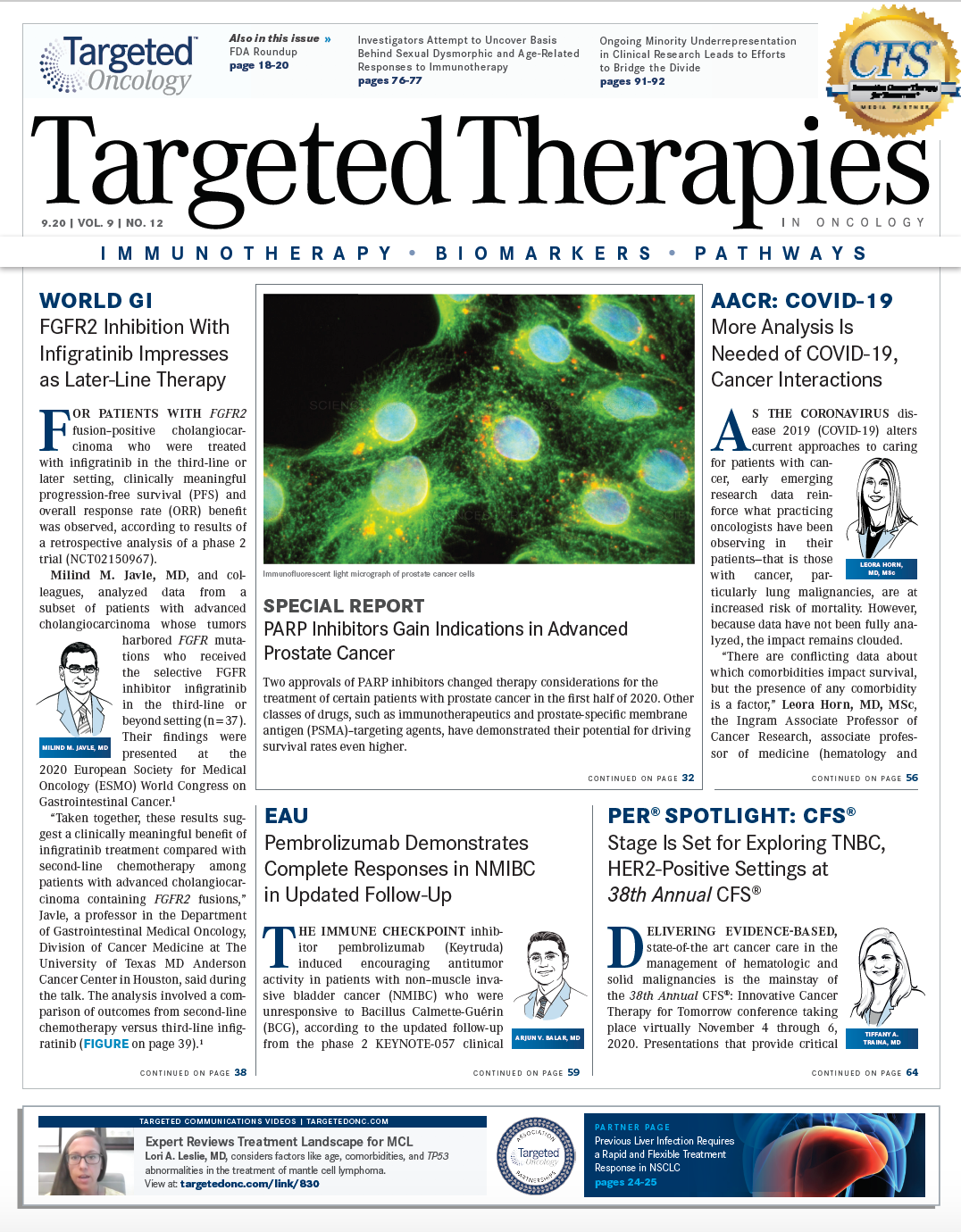KEYNOTE-057 Findings Bolster Use of Systemic Therapy in Urothelial Cancer
Arjun V. Balar, MD, reviewed the data from the KEYNOTE-057 and how they impact the treatment of urothelial cancer in an editorial note.
Arjun V. Balar, MD

A lot is changing in bladder cancer therapy, seemingly from all sides. In metastatic disease, conventional approaches such as platinum-based chemotherapy are being challenged by novel first-line approaches using antibody-drug conjugates and immunotherapy. In localized disease, highly curative but morbid approaches such as radical cystectomy are being challenged by novel agents to both help patients preserve their bladders and effectively treat the disease.
The first of such trials to meet FDA muster for approval was KEYNOTE-057, a phase II, single-arm trial of pembrolizumab (Keytruda) in BCG-unresponsive high-risk nonmuscle-invasive bladder cancer (NMIBC). Cohort A of that trial focused on patients with carcinoma in situ with or without papillary disease, which represents the largest population of patients with bladder cancer and the group that is at high risk of progression to invasive and potentially metastatic disease after BCG has failed. The interim data were promising, demonstrating a 40% complete response rate to pembrolizumab for the 96 evaluable patients at the 3-month evaluation, as defined in the protocol.
Ultimately, after more than 2 years of follow-up, nearly half of these responses were durable beyond 12 months, suggesting that there is clear activity for pembrolizumab in this population that is historically managed with radical cystectomy. For reference, the only other FDA-approved agent for BCG-unresponsive, high-risk NMIBC, valrubicin, has a 20% complete response rate, with responses that are rarely durable.
The KEYNOTE-057 data were nonetheless debated at an FDA oncologic drug advisory committee meeting in December 2019. The question: Do these data demonstrate a sufficiently positive risk to benefit ratio for patients with high-risk, BCG-unresponsive NMIBC to merit FDA approval? The debate was appropriate; some cautioned about overinterpreting these data, given their incompleteness and relative immaturity. (Early-stage bladder cancer has a long natural history, and responses are common even with salvage agents such as intravesical chemotherapy.)
Ultimately, the promising efficacy balanced with the desperate need for bladder-sparing approaches voiced by patients merited FDA approval in January 2020, signaling a paradigm shift in how we manage patients with early-stage bladder cancer. Other ongoing studies, including testing PD-1/L1 blockade in combination with BCG at first diagnosis of high-risk NMIBC, will further challenge the field to demonstrate better outcomes for patients while still allowing patients to preserve their bladders.
As a medical oncologist, I find this novel approach particularly unique in its use of a systemic immune agent in a disease historically managed by local therapy (administered intravesically), which generated a local immune response. However, one of the key principles of cancer biology we teach trainees involves thinking of the cancer as a potentially systemic disease at its outset; even in NMIBC, up to 10% of patients develop metastases. That’s why radical cystectomy is often recommended: Remove the cancerous bladder before the dissemination of metastases. We know from trials of pembrolizumab in metastatic urothelial cancer that up to 29% of patients will have responses, many of which will be durable, owing to the development of a systemic and sustained immune response. Perhaps the broader lesson being learned from the KEYNOTE-057 data is that systemic therapy may offer the best way to elicit an effective immune response to potentially cure the disease and help more patients keep their bladders. I’m certainly eager to see what the future holds.

Survivorship Care Promotes Evidence-Based Approaches for Quality of Life and Beyond
March 21st 2025Frank J. Penedo, PhD, explains the challenges of survivorship care for patients with cancer and how he implements programs to support patients’ emotional, physical, and practical needs.
Read More